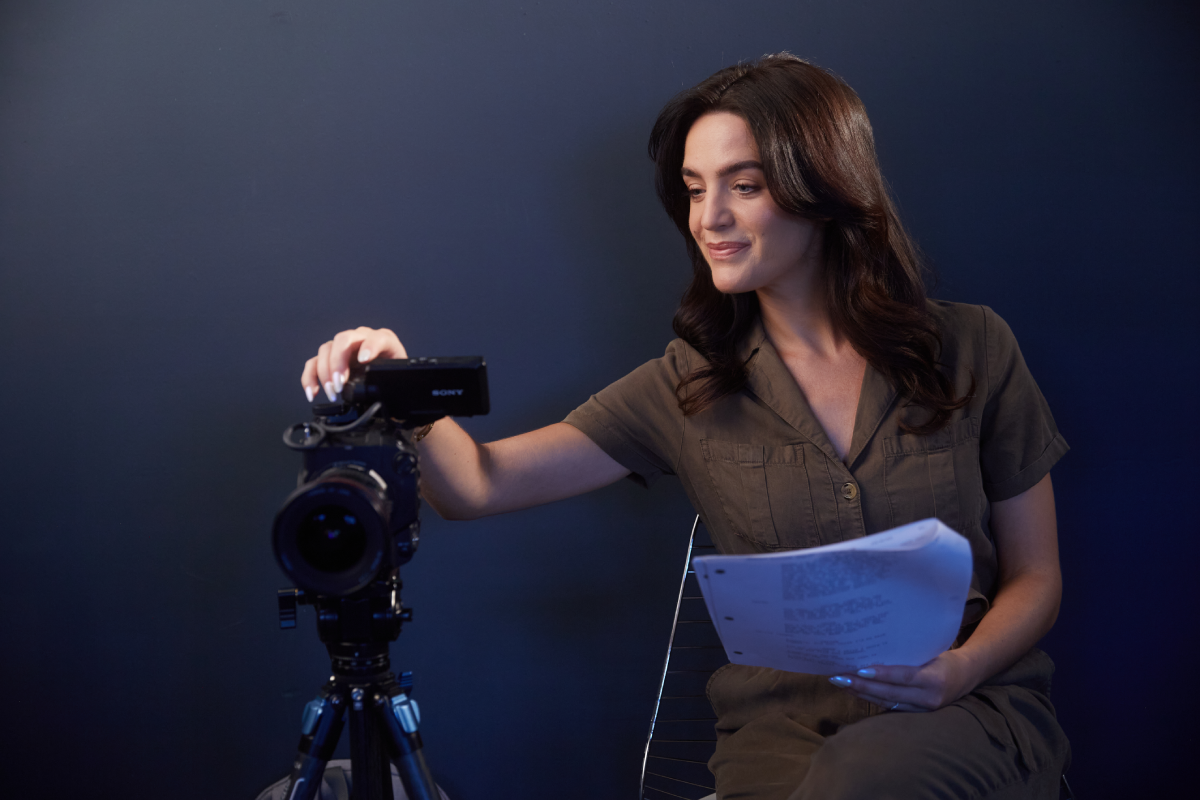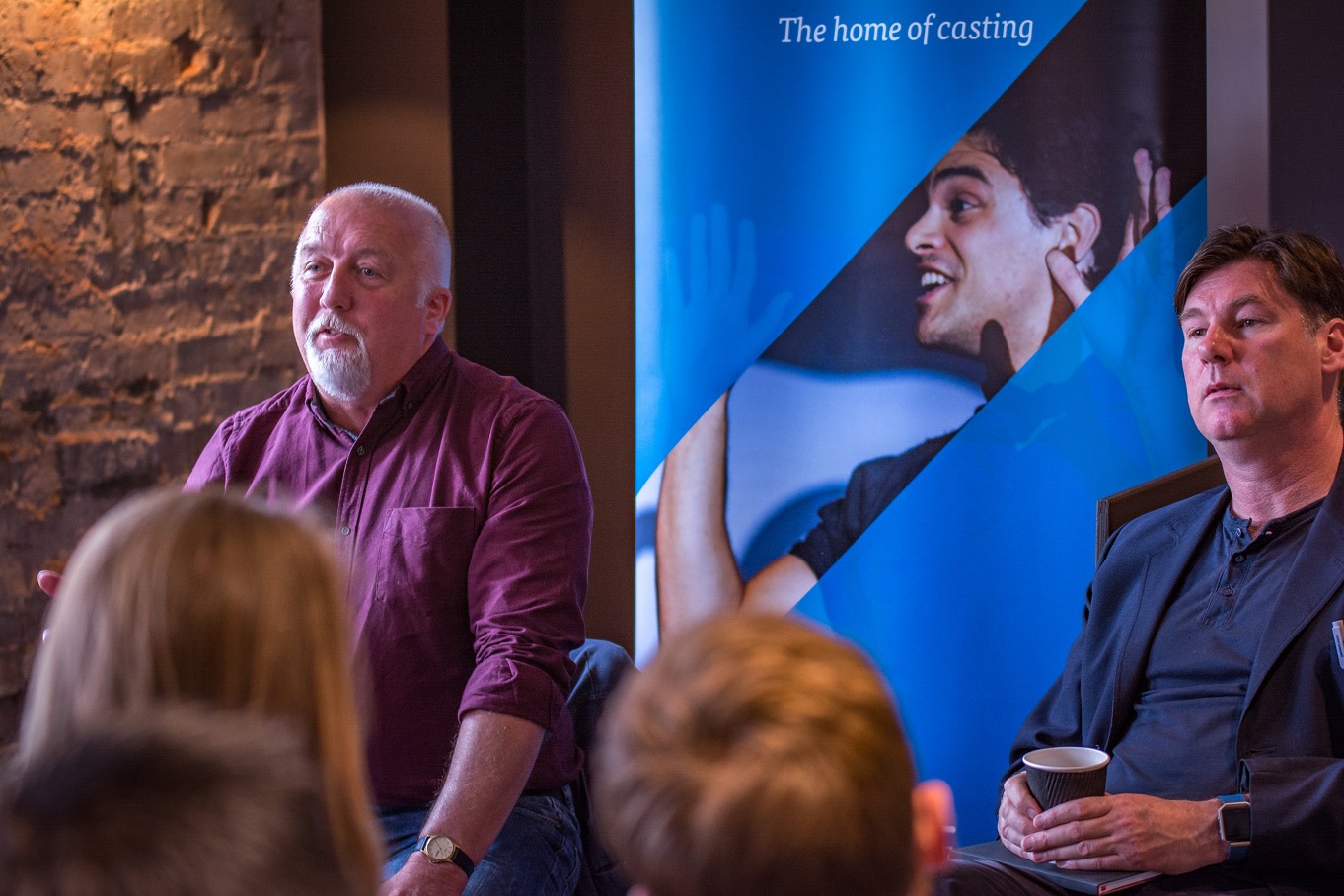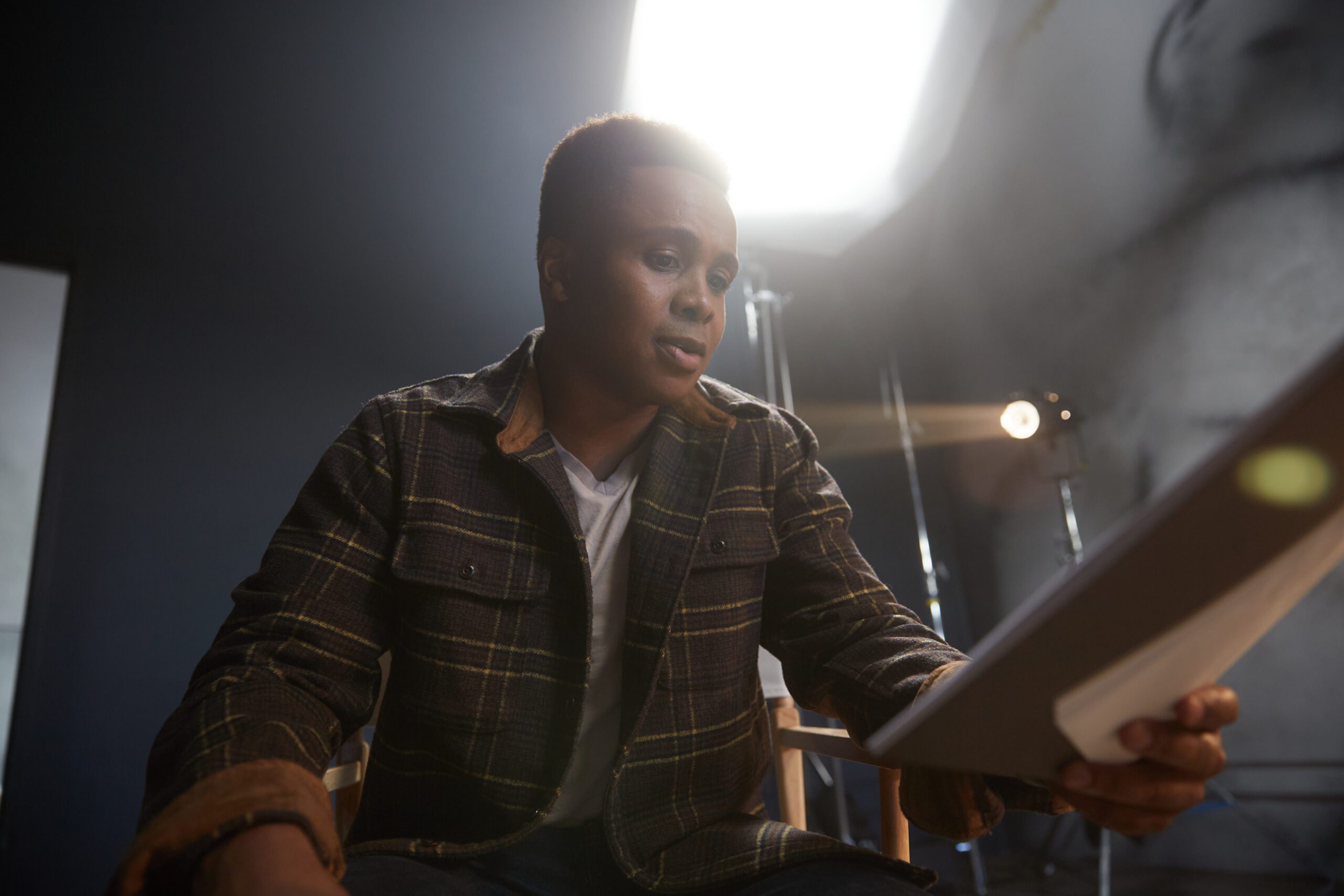Spotlight’s Industry Forum provided an insight into the casting process and answered those burning questions about street casting, Spotlight searches, and how to help ‘unknown’ actors stand out.
You’re finding the piece of the jigsaw to fit into somebody else’s picture.
The panel, formed of casting directors Dave Peacock (voice), Aisha Bywaters (screen) and Ellie Collyer-Bristow (stage), provided an excellent opportunity for agents and casting directors to learn how the casting process can vary between mediums in the industry.
For voice casting, David Peacock forms a list of candidates from plenty of Spotlight searches, as well as the names that come to mind of those he’s seen in plays, TV shows, and previous castings. Occasionally he will ask for self-tapes, particularly for children or clients with lower budgets, but he will often strip away the visual elements, and also replace the performers’ names with numbers if a well-known person is in the line-up. This prevents a bias towards picking performers because they’re recognisable, instead of being the best person for the role.
Screen casting for Aisha Bywaters is all about the tapes. There will be variations depending on the type of process the director wants to have, but typically she’ll ask for lots of self-tapes. She wants to see people she’s not met before, give opportunities to ‘unknown’ performers, not simply defer to people in things she’s already seen. It’s not the end of the world if a self-tape lacks direction. It’s just a tool to get people in the room, and then the more traditional process can begin.
Ellie Collyer-Bristow prefers face-to-face meetings for stage casting. A self-tape isn’t as helpful in theatre as having someone in the room, and so she’ll bring people in for 15-20 minute slots, and maybe give them a recall. Her process involves reading through the script and then discussing her own ideas against the director’s ‘dream cast’. From this, she can get a good idea of what they’re looking for and fill it with suitable performers. If there are any issues or doubts about the list, then the role will be opened up to ‘unknown’ performers through Spotlight.
The desire to cast ‘unknown’ performers clearly exists in all three industries. But how, as an agent, can you make your ‘unknown’ client who’s perfect for a role stand out? The panel’s recommendation was to use the notes section when submitting on Spotlight to make your case. Tell the casting director why this performer is perfect for the role, insert information that’s helpful, and if you don’t hear back from them then phone them up.
Yes, sometimes those phone calls are annoying, but if they’re right, the reason we’ve put the breakdown out is because we want your help. We want your suggestions.
It might even be worth requesting part of the script, so the performer can make a self-tape to send in. At the very least, you’ll see if they were suited for the role or not.
But of course, performers getting cast doesn’t just happen through applications. Casting directors actively seek out suitable candidates, and so it’s important for a Spotlight profile to be as searchable as possible. Our panel agreed that they will often search through production names to find performers from popular shows they might have missed. Voice casting relies on searching by accents, so ensure they’ve been added whilst keeping the selection honest and sensible. Having every accent selected as ‘native’ won’t let the casting director know where someone’s from, and they’ll be discounted. Likewise, a performer’s location will have a big impact on a theatre production’s budget, so this needs to be listed truthfully as well.
Not all searching will happen online. Some casting directors will do ‘street casting’ – in which they scout a non-performer from a public place to fill a role. This is not commonly done for stage and voice roles (except in the case of finding children), as the time and effort spent does not always make it worthwhile. But for screen, street casting has become a popular way of filling roles.
What I’ve found really helpful in recent years is social media. It’s like, completely and utterly changed the game of street casting.
By borrowing the influence of popular social media users, Aisha has had successful street castings with thousands of children showing up. Other times, she will visit schools and observe. But even in cases where she does find that perfect youngster, the success of a talented child relies heavily on the professionalism and discipline of the parent. The importance of arriving to rehearsals on time or not making a child rehearse to the point of sounding false may not be apparent to those unfamiliar with the world of casting.
Even with all these searching methods, there are some elusive performers our panel struggles to find. For Ellie, it’s middle-aged women willing to tour. Aisha seeks certain nationalities and appearances e.g. Egyptian actors and BAME actors who can do RP accents. Dave’s golden goose are really talented child performers, especially boys who are American.
You can find out more about Spotlight’s future events through our website or by following us on Twitter. Be sure to opt into our email communications in order to hear more updates about these sorts of events in future!



















